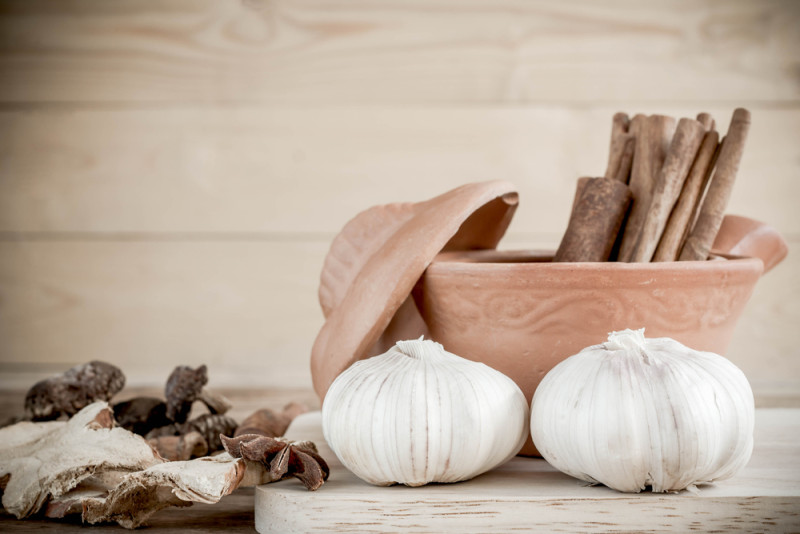Inflammation is a natural response to cuts and stings and viruses, right? So why would you want to reduce inflammation?
Unfortunately, inflammation, a natural and often beneficial function of your body, can sometimes go awry. You see, chronic inflammation occurs when the body is under stress or exposed to environmental toxins. Think junk food and chemicals, and you’ve got a good start.
To make matters worse, chronic inflammation can have negative effects on the body in numerous ways, and recent research has shown a link in chronic inflammation to obesity, diabetes, heart disease, and even depression. So finding ways to reduce inflammation may help you feel better. (1)
Fighting Chronic Inflammation with Nutrition
Chronic inflammation occurs when the immune system believes there is a constant threat, causing it to attack the body’s cells. In fact, inflammation can damage the body and also be a key culprit in weight gain.
Have you heard of antioxidants? These little gems in your food supply help reduce inflammation. So if you haven’t read up on antioxidant foods, they’re a way to help your body fight inflammation naturally. Anti-inflammatory foods include (among others) the following: (2)
- Blueberries
- Pineapple
- Leafy Green Vegetables
- Celery
- Walnuts
- Chia Seeds
- Turmeric
- Ginger
- Cinnamon
- Garlic

While incorporating these foods into your diet, make sure to stay away from foods that cause inflammation, such as those containing sugar, artificial ingredients, chemicals, and gluten, for those who have a gluten sensitivity. But food isn’t the only way to help your body fight harmful inflammation.
Take these six steps to reduce inflammation:
1. Avoid Certain Medications
Antibiotics, antacids and NSAIDs can harm your microbiome by altering your gut, changing the way you digest your food. This kind of damage can cause inflammation that weakens the intestinal wall and causes leaky gut, which releases toxins that trigger an immune response. These medications can often have a harmful effect on the immune system and end up causing chronic inflammation throughout the entire body. (3)
2. Reduce Toxin Exposure
When foreign substances encounter the immune system, the body can react by creating inflammation. This applies to toxins in your home environment as well as personal care products. So take care! Detoxify your life by choosing safe, organic, and natural products. Check your household cleaning products, laundry detergent, face wash, hair products, deodorants, and perfumes for chemicals that may be harmful to your health. (4)
3. Stay Active
Exercising regularly promotes overall health and well-being. In one study, researchers followed over 4,000 middle-aged participants for more than 10 years. They found that those who exercised for at least 2 1/2 hours each week had a lower risk of inflammation, by at least 12%. In fact, performing some form of exercise several times a week will keep your blood pumping and improve cardiovascular health, which in turn will play a role in keeping other parts of the body healthy and strong. (5)
4. Get Plenty of Sleep
Burning the candle at both ends causes many problems, including high stress levels and chronic inflammation. Yes, sleep is vital to keeping the body healthy. But it isn’t just how long we sleep at night. It’s also the quality of that sleep. Not only that, but disrupted sleep causes problems, too. Research shows that not getting enough sleep can trigger inflammation. For a better night’s rest, eat a light dinner, skip the alcohol, and turn off all electronics at least an hour before bedtime. This strategy will go a long way to help reduce inflammation. (6, 7)
5. Enjoy Some Sunshine
Sunlight helps us create Vitamin D, and that’s the best natural source of Vitamin D you can get. o While too much sun exposure can be harmful, getting enough vitamin D is crucial to keeping your immune system strong. Vitamin D deficiency has been linked to inflammation, as well as depression. Aim for at leas 15 minutes outdoors each day. In fact, spending time outside in both the morning and late afternoon is best. (8)
6. Pamper Yourself With a Massage
You know a massage helps you relax, right? Well, it lowers stress levels, too. Research suggests that a 45-minute massage can lower levels of pro-inflammatory cytokines in the body. So there you have it: a legitimate medical reason to enjoy a massage. It fights inflammation! (8)


